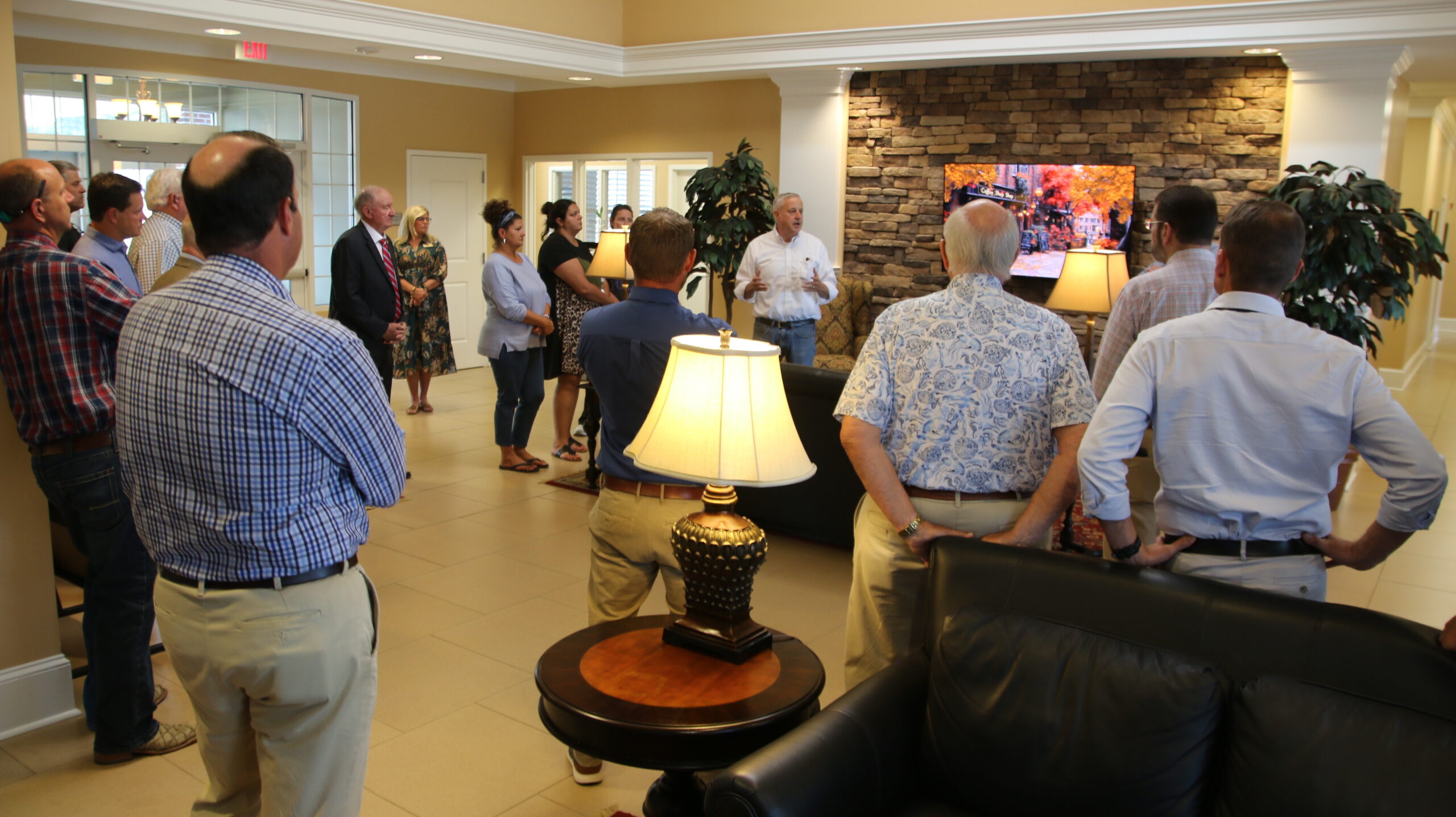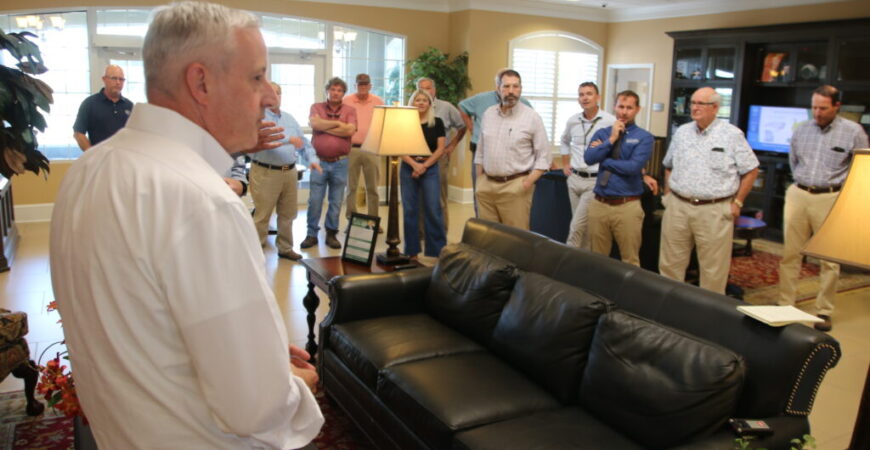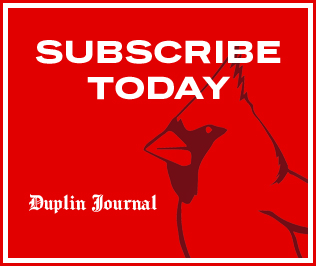KENANSVILLE — Michael Whatley, the man hand-picked by President Donald Trump to face off against former Gov. Roy Cooper in the race for the U.S. Senate seat after Sen. Thom Tillis announced he would not seek re-election, dropped into the Duplin County Airport on Oct. 7 to meet with area agriculture leaders.
The race is predicted by political observers to be the most expensive Senate race in U.S. history. The meeting was arranged by NC House District Four Representative Jimmy Dixon.
Local representatives from several agricultural companies, farms and groups filled the lobby at the airport for the meeting, including House of Raeford, Cottle Farms, Mount Olive Pickles, and Chad Herring, president of North Carolina Family Farms.

Dixon, introducing Whatley, pointed out to the candidate the significant economic contributions agribusiness in Duplin County makes.
“House of Raeford, Nate Johnson and Sons, with sales last year in excess of a billion dollars,” Dixon said. “They employ several thousand people.”
Dixon also singled out Chad Herring, who Dixon said owned 42 chicken houses “at a cost of $260,000 apiece.”
Whatley told the group he was very familiar with Duplin County, especially after being asked by the Trump campaign to quickly arrange a rally.
“When we were looking to hold our first ag-oriented event, I was on the phone with the Farm Bureau and I said, ‘Hey, I need a place to hold a Trump rally.’ Jimmy (Dixon) called me back and said, ‘We got a place in Kenansville.’”
Whatley said he called the campaign and said, “We got a place in Kenansville, North Carolina, population 855. They said, ‘You sure about this?’”
He said he got the same response from Trump Tower after hearing how small Kenansville is, but they had the event at the Duplin Event Center. Whatley said it ended up being “fantastic.”
After serving as chairman of the North Carolina Republican Party, he was chosen by the president to become chairman of the Republican National Committee until he got a call from Trump after Tillis decided against seeking re-election.
“The president asked me to step aside at RNC and step into this race and run.”
In an exclusive interview with Duplin Journal after his meeting with farmers, Whatley was asked about the difference between how larger population areas versus more rural areas think, and that while there are more voters in urban areas, how important are rural areas to him.
“They’re tremendously important,” Whatley said. “We’ve got 100 counties in North Carolina. We’ve got a microcosm of America. Agriculture is the number one part of our economy. The agriculture issues, you’re not going to learn, you’re not going to talk to people about what they care about and get that input on agriculture issues if all you ever do is go from Charlotte to Raleigh and back.”
Duplin Journal asked Whatley about the tendency of the state’s voters to practice split ticket voting during elections, such as electing conservatives to many offices while voting for Democratic governors.
“We’re a purple state,” Whatley said. “We’re 30 percent Republican, 30 percent Democrat, and 40 percent unaffiliated. When we think about the federal races, whether it’s President, Senate or Congress, the Republicans win when we listen to the voters, and we understand what they care about and put solutions on the table.”
Whatley addressed two issues he believes are very important to voters in the state – the economy and safety.
“When I look at North Carolina as a whole, the economy really, really matters,” he said. “It matters to everybody in every community. We need more jobs. We need to raise wages. We need to have policies that are going to help our manufacturers and our small businesses, and our farmers.”
On safety, Whatley said, “If your community isn’t safe, then that’s a huge problem. We need to make sure we are doing everything we can to keep every one of our communities and our families safe.”
He added one more issue he believes is important to the state.
“And of course, everybody cares about the military here in North Carolina.”
 Twitter
Twitter Facebook
Facebook Instagram
Instagram






